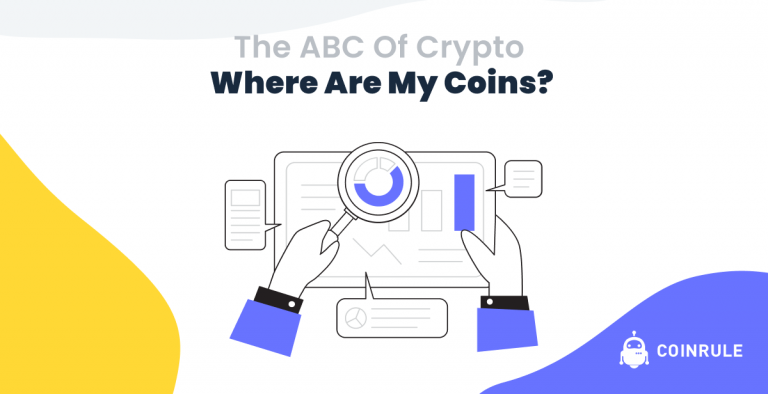While traders and investors are busy making profits in the Bull market, often they forget about some basic safety measures to prevent losing their crypto. After so much effort accumulating, where are my coins now?
Losing crypto has increasingly become common over the last three years, and it has attracted a lot of attention. A recent study revealed that users lost 20% of BTC, and there is no way of recovering them. However, the big question is how crypto can get lost and stored in a protected ledger? It does not make sense.
Even so, several ways can make you part with your hard-earned crypto. Some of the instances are out of your mistakes or someone else’s. Below is a breakdown of some of the ways through which you can lose crypto.
Safely Store Your Private Keys
Crypto HODLers have long strings of letters and numbers used as a key for accessing the cryptocurrency wallet and making transactions. Unlike the password of your bank account, you are the sole owner of those keys. Without them, you cannot access your funds. In case you lose the keys, your crypto is lost forever. Just like that, your funds go down the drain.
To avoid this problem, back up the private keys in multiple safe locations. Improvise ways like exporting the keys as a soft copy, printing the keys as paper wallets, writing them down somewhere safe, or using mnemonics to memorize them. Do everything possible to make sure you don’t lose your keys.
Avoid Phishing
Phishing is one of the most widespread ways of accessing login details and secret keys. The attackers duplicate the original crypto website, making an exact copy of it. These phishers will approach you posing as genuine personnel in the crypto industry, such as wallet or exchange providers, and lure you into giving them your credentials. Once you fall for the trap and provide them your credentials of keys, they will withdraw everything from your account.
Sometimes, these fraudsters imitate exchange email layouts that strongly resemble the original exchange emails. The email will prompt you to click a link to resolve an issue with the account. Then, the link will redirect you to a fake page, where the attackers collect your login details.
For you to avoid falling victim to these schemes, avoid clicking random suspicious links. It would help if you also typed URLs directly on the address bars. Additionally, ensure that you don’t upload your private keys on websites, even the genuine ones, and you should always double-check the information on communication channels to avoid these tricks.
Protect From Malware
Malware may steal your cryptocurrency through a variety of methods. For example, malware on pirate sites or in the Google Play Store is designed to steal cryptocurrency from unsuspecting users.

CookieMiner, for example, collects browser cookies and passwords stored on Chrome to access your exchange and wallet websites. Exchanges usually save cookies from users into the browser to verify the login status. Thus, a hacker in possession of the user’s cookies could potentially sign into the website to raid the victim’s coins.
There is also a malware clipper. A trojan application that steals cryptocurrency by making users copy and paste wallet addresses. Suppose you are used to transferring crypto to an address that you generally copy and paste because it is a large string of odd characters. In that case, the clipper virus will switch the wallet address when you paste, making you transfer crypto to the incorrect address. Always double-check the destination address before confirming the transfer!
Installing verified Browser Extensions
There are trustworthy crypto browser plug-ins such as MetaMask and Lolli, which make the online experience fun. However, it is not the same for all other extensions. Malicious extensions are ready to prey on unsuspecting victims who are unaware of their permissions.
They will then gather your login credentials and take all the money in your wallet. Therefore, before installing a browser plug-in, do your homework.
Read reviews, look for information on Google, and make sure you know what permissions you’re granting the software. If possible, use open-source extensions at all times.
Using Strong Passwords and Reusing Them
To ensure your wallet password is safe:
- Use a complex one that no one can easily guess. The password should include both upper- and lower-case letters.
- Mix these letters with numbers and symbols.
- Even if you make your password complex, ensure that it is long enough so that hackers get a hard time cracking the password.

However, using a strong password alone is not secure enough. If you use the same password on other platforms, then your wallet is not safe enough. A data breach on one of those sites might have consequences for all of your accounts that utilize that password.
Use a password manager to create unique and complex passwords for each website.
Use Two-Factor(2FA) Identification
Any major crypto operation requires two-factor verification. A criminal might gain access to your account using simply your username and password if you don’t utilize two-factor. It is common for companies to be hacked.
Consequently, your information can easily land in unauthorized hands. For example, if you have a two-factor authentication set, a hacker will require physical access to your phone, email account, or yourself to obtain a permit.
Most cryptocurrency systems allow this authentication method but the types available vary. Others incorporate authentication tools like Authy or Google Authenticator, while others employ SMS and email. A few firms also use biometrics. However, even with two-factor security measurements, criminals are witty enough. They may use tactics like sim swapping to get around the security measures.
Protect your Coinrule account by enabling Two-factor authentication.

Encrypt Critical Information
It is not advisable to keep your crypto wallet account details on your computer as plain text since it is easily accessible. Any sensitive data you save on your computers, such as secret keys and passwords, should be encrypted and password-protected. Encrypt your emails and any other communication channels you can to offer an extra degree of protection.
At times, hackers can gain access to your information quickly through malware or even a keyboard logger. Therefore, you should consider employing another method for storing your password apart from your computer. For example, you can choose to write them down and keep them in security deposit boxes. For further protection, write the password partly in different papers and store them in multiple safety boxes or other discreet locations at home or office.
Closing Remarks
Losing your hard-earned money can be so painful. Regardless of the numerous advantages that crypto offers, there is no insurance for the lost digital currency. Keeping your crypto safe comes with a massive sense of responsibility. Adhere to the tips above to keep your account away from the cybercriminals lurking in the dark.
Keeping your coins safe is important if you believe Crypto is the future of finance and you consider them a long-term investment!
